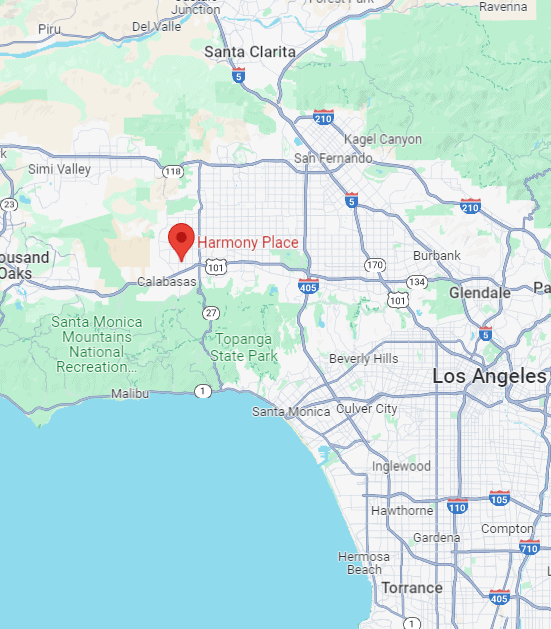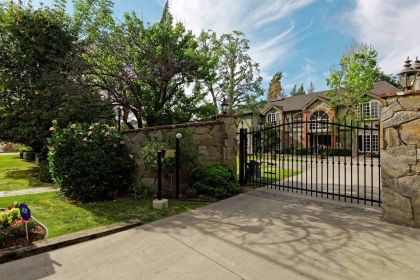How Much Does a Los Angeles Outpatient Program (OP) Cost Without Insurance?
In Los Angeles, the cost of an outpatient program (OP) without insurance can vary depending on several factors. An outpatient program session can cost between $100 to $500 per session. The overall cost will also depend on the outpatient program duration, frequency, and specific services.
For those seeking affordable outpatient treatment options, Harmony Place Treatment Center offers outpatient rehab programs without insurance. With a focus on holistic, personalized treatment, Harmony Place strives to make treatment accessible to all individuals, regardless of their insurance status. Patients can receive comprehensive support through their holistic outpatient programs, including therapy, counseling, medication management, and other essential services, at competitive rates. Harmony Place also offers sliding scale fees for outpatient program services and Outpatient Program payment plans to make outpatient care more financially accessible.
By choosing Harmony Place Treatment Center for outpatient care, patients can embark on their journey to recovery with the peace of mind that comes from knowing they are receiving high-quality treatment at a value-driven, affordable price. To learn more about our outpatient treatment options and the cost of our Outpatient Programs in Los Angeles, contact us online or call (855) 652-9048.
What Are the Expected Out-of-Pocket Costs for OPs in California?
While the exact out-of-pocket costs for outpatient programs (OPs) in California can vary depending on factors such as the type of services received, treatment duration, and the specific program provider, the out-of-pocket costs for OPs can cost a few hundred to several thousand dollars, depending on the level of care and insurance coverage, if applicable.
Typically, individuals can expect to incur costs for services such as therapy sessions, counseling, medication management, and other treatment modalities offered as part of the OP. Additionally, there may be fees associated with initial assessments, drug testing, and administrative expenses.
To help offset these costs, many treatment centers offer flexible, low-cost payment options, sliding-scale fees based on income, or financial assistance programs to help make addiction treatment more affordable for those without insurance or with limited financial resources. It’s essential for individuals to inquire about the total cost of treatment upfront and explore available financial assistance options to ensure they can get the addiction treatment they need without undue financial burden. To learn more about the outpatient program drug addiction treatment and the associated out-of-pocket costs, contact us at Harmony Place Drug and Alcohol Treatment or call (855) 652-9048 for help.

Outpatient Program Rehab Facilities in California That Offer Payment Plans
Harmony Place Rehab Center stands out among outpatient program rehab facilities in California by offering flexible payment plans to accommodate individuals seeking treatment for substance abuse or mental health issues. Their commitment to affordable outpatient program treatment costs means that financial constraints do not stop people from accessing the needed recovery care.
Harmony Place understands the importance of providing affordable options for those without insurance or facing financial difficulties, so they offer payment plans tailored to each individual’s circumstances. By prioritizing rehab affordability without compromising the quality of outpatient care, Harmony Place Rehab Center strives to make treatment accessible to all.
For those interested in exploring wallet-friendly payment plan options or learning more about the outpatient programs offered at Harmony Place Rehab Center, call (855) 652-9048 or visit the center at 23041 Hatteras St, Woodland Hills, CA 91367. The dedicated staff at Harmony Place are available to provide information, answer questions, and guide individuals through finding the right treatment plan that fits their needs and budget.
Harmony Place – Woodland Hills, CA
23041 Hatteras St.
Woodland Hills, CA 91367
Common Types of Outpatient Programs (OP) in Southern California
In Southern California, outpatient programs (OPs) offer diverse treatment options for those seeking support for substance use and mental health disorders. These programs provide flexible and accessible treatment while allowing people to maintain their daily routines and responsibilities. Understanding the common types of outpatient programs available in the region can help individuals make informed decisions about their treatment options.
Los Angeles OP for Alcohol Use Disorder (AUD
An outpatient program for alcohol use disorder (AUD) in Los Angeles provides structured treatment for those struggling with alcohol abuse or dependence. Outpatient programs typically include addiction counseling, therapy sessions, education about alcohol addiction, and relapse prevention strategies. Additionally, participants may have access to medical interventions such as medication-assisted treatment (MAT) to manage withdrawal symptoms and cravings.
The cost of outpatient programs for alcohol use disorder in Los Angeles can vary depending on the duration of treatment, the intensity of services provided, and the specific program provider. On average, outpatient sessions cost between $100 to $500 per session. However, many outpatient treatment centers accept insurance or offer sliding-scale fees based on income and other financial assistance programs to make outpatient treatment more affordable for those in need.
Los Angeles OP for Substance Use Disorder (SUD)
Outpatient programs for substance use disorder (SUD) in Los Angeles offer comprehensive treatment for individuals dealing with addiction to drugs such as cocaine, opioids, methamphetamine, and other substances. These programs utilize evidence-based approaches to address substance abuse, including cognitive-behavioral therapy (CBT), motivational interviewing, and contingency management.
Outpatient program participants receive treatment plans individualized to their needs, including therapy, detox, counseling, medication management, and support groups. Outpatient programs for SUD aim to help individuals achieve and maintain sobriety while addressing underlying issues contributing to addiction.
The estimated cost of outpatient programs for substance use disorder in Los Angeles can vary depending on factors such as the level of care provided, the duration of treatment, and the specific services included. On average, outpatient programs, i.e., OP for addiction recovery, cost between $100 and $500 per session for outpatient services. However, many outpatient treatment centers offer financial assistance programs or accept insurance to help offset the cost of treatment for those in need.
Los Angeles OP for Dual Diagnosis Treatment
Dual diagnosis outpatient treatment in Los Angeles helps to address the needs of those dealing with both substance misuse disorders and co-occurring mental health disorders such as depression, anxiety, bipolar disorder, or post-traumatic stress disorder (PTSD). These programs offer integrated care that simultaneously targets both substance abuse and mental health issues, recognizing the interplay between these conditions.
Dual diagnosis addiction treatment may include a combination of therapies, including medication management, individual counseling, group therapy, psychoeducation, and holistic approaches to address the physical, emotional, and psychological aspects of recovery. The estimated cost of dual diagnosis treatment in Los Angeles varies depending on the intensity and duration of rehab treatment, the specific treatment services provided, and the program provider. On average, people can expect to pay between $100 and $500 per session for outpatient services. However, the cost may be higher for comprehensive programs that offer more specialized care or additional services.
Many treatment centers offer financial assistance programs, sliding-scale fees, or accept insurance to help make dual diagnosis treatment or mental health outpatient program pricing more accessible and affordable for individuals seeking support for both substance abuse and mental health disorders.

How Much Do Southern Californian Outpatient Programs (OP) Cost With Insurance?
The average cost of behavioral health outpatient programs in Southern California with insurance coverage can vary depending on insurance coverage, the specific services needed, and the duration of outpatient treatment needed. On average, individuals with insurance coverage can expect to have a significant portion of their outpatient treatment costs covered by their insurance provider.
So, how much does outpatient rehab cost with insurance? It varies. Coverage typically includes therapy sessions, counseling, medication management, and other essential treatment modalities. However, out-of-pocket expenses such as copayments, deductibles, and coinsurance may still apply. As such, the actual cost individuals incur for outpatient programs with insurance can range from as low as $20 to $100 per session to several hundred dollars per outpatient session, depending on the specifics of their insurance plan.
For more specific information about the cost of outpatient programs with insurance coverage, you can contact us at Harmony Place Treatment Center or call (855) 652-9048.
What Impacts the Cost of Los Angeles Outpatient Programs?
Several factors determine the cost of Los Angeles outpatient programs. Understanding cost factors is essential for individuals and their families to plan and budget effectively for outpatient care. Here are some key things that can influence the cost of outpatient programs in Los Angeles:
- Severity and type of addiction: The severity and type of addiction can significantly impact the cost of outpatient programs. Individuals with more severe addictions or those requiring specialized treatment for specific substances may incur higher expenses due to the need for more intensive therapy and medical interventions.
- Outpatient program duration: The duration of the outpatient program is a determining factor for its cost. Longer treatment durations typically result in higher overall expenses, as individuals receive more support and services over time.
- Intensity of treatment: The intensity of outpatient treatment, including the duration and frequency of sessions, counseling, and other services, can affect the cost of outpatient programs. More intensive treatment plans that involve frequent or prolonged sessions may incur higher expenses.
- Medical services and staff expertise: Outpatient programs that offer specialized medical services or have highly experienced staff members may charge higher fees to cover the costs associated with providing quality care.
- Location: The location of the outpatient program can influence its cost, with programs located in more affluent or desirable areas often commanding higher prices.
- Insurance coverage: Individuals with insurance coverage may have a portion of their outpatient program costs covered by their insurance provider. However, insurance coverage can vary depending on an individual’s insurance plan and the specific services included in the program.
Considering these factors can help individuals and their families assess the potential costs and economic burden associated with outpatient treatment and make informed decisions about their care. You can contact us at Harmony Place Treatment Center to learn more about our fee structure, competitive pricing options, and any available financial assistance.
How to Pay for Outpatient Rehab Treatment
Paying for outpatient rehab treatment can be a significant concern for individuals and families seeking care, and many find themselves asking, “How much does Outpatient rehab cost?.” Fortunately, there are several options available to help cover the costs of treatment.
Understanding the cost of addiction, outpatient programs can empower individuals to get the treatment they need without creating a financial burden. Here are some common ways to pay for outpatient rehab treatment:

- Health insurance: Many insurance plans provide coverage for outpatient rehab treatment, including therapy sessions, counseling, medication management, and other services.
- Out-of-pocket payment: Some individuals may choose to pay for outpatient rehab treatment out of pocket, especially if they do not have insurance coverage or if their insurance plan does not fully cover the cost of treatment. Out-of-pocket payment allows individuals to access treatment without relying on insurance benefits but may require upfront payment of fees.
- Sliding scale fees: Many outpatient rehab facilities offer income-based, sliding scale fees to make treatment more affordable for cost-conscious individuals with limited financial resources. Sliding scale fees adjust the cost of treatment based on the individual’s ability to pay, ensuring that care remains accessible to all income levels.
- Payment plans: Outpatient rehab facilities may offer payment plans with affordable rates to help individuals spread the cost of treatment over time. Payment plans allow individuals to make regular installment payments towards their treatment expenses, making it easier to manage the financial burden of rehab care.
- Employee Assistance Programs (EAP): Some employers offer Employee Assistance Programs (EAP) that support employees who need treatment for substance misuse or mental health issues. EAPs may cover some or all of the costs associated with outpatient rehab treatment, depending on the employer’s policies.
- Government assistance programs: Programs such as Medicaid or state-funded treatment programs may provide financial assistance for outpatient program therapy options. These government-assisted programs vary by state and may have income-based eligibility requirements.
- Family support: Family members may offer financial support to help cover the overall costs and the out-of-pocket expenses for outpatient programs. This support can come in the form of loans, gifts, or contributions towards treatment expenses.
- Scholarships or grants: Some outpatient rehab facilities offer grants or scholarships to those needing financial assistance for an outpatient program. These scholarships or grants may cover some or all treatment costs and are typically awarded due to financial need or other criteria.
By exploring these cost-effective payment options, individuals and families can find the budget-conscious financial assistance they need to access outpatient rehab treatment and embark on recovery. If you need more information on an outpatient program with competitive fees and reasonable costs, contact us at Harmony Place Rehab Center for more information on a cost-efficient Outpatient Program without insurance or with insurance coverage.
Outpatient programs (OPs) play a significant role in addressing substance abuse and mental health issues across California. According to recent statistics, structured outpatient care and treatment is one of the most commonly utilized forms of addiction and mental health care in the state.
SAMHSA data indicates that a substantial portion of those seeking outpatient treatment for substance use or mental health disorders opt for outpatient services due to their flexibility, affordability, and effectiveness in providing support while allowing people to maintain their daily routines. In California, outpatient programs cater to diverse demographics, including adults, adolescents, and older adults, offering tailored treatment to meet the needs of each group. These programs often incorporate evidence-based practices such as cognitive-behavioral therapy (CBT), dialectical behavior therapy (DBT), motivational interviewing, medically supervised detox, and medication-assisted treatment (MAT) to treat substance misuse and mental health issues effectively.
With the growing recognition of the importance of early intervention and comprehensive care, outpatient programs continue to be a vital component of California’s efforts to promote addiction recovery and improve mental health outcomes statewide.
The data from a March 2019 SAMHSA report provides an overview of the types of rehab care received by those in California treatment facilities, along with the corresponding numbers and percentages. Across a spectrum of care options, ranging from outpatient services to hospital inpatient care, the statistics reveal the distribution and prevalence of treatment modalities within the population.
According to the report, on March 29, 2019, a total of 96,960 clients were in treatment across various facilities. Out of these, the majority, accounting for 60.4% (1,085 clients), received outpatient care. Within this category, 86.2% of all clients and 93.5% of clients under the age of 18 were served. The median number of clients per OTP (Opioid Treatment Program) facility was 295, while for non-OTP facilities, it was 29.
Regular outpatient care was provided to 54.5% (979 clients) of all clients and 31.9% of clients under 18. Intensive outpatient care was received by 38.3% (688 clients) of all clients and 9.0% of clients under 18. Day treatment or partial hospitalization was utilized by 18.0% (324 clients) of all clients and 2.0% of clients under 18. The median number of clients per facility was 40 for OTPs and 7 for non-OTP facilities. Detoxification was undergone by 13.1% (236 clients) of all clients and 1.0% of clients under 18.
Residential (non-hospital) care was availed by 45.8% (823 clients) of all clients and 13.2% of clients under 18, with a median number of clients per facility being 132 for OTPs and 12 for non-OTP facilities. Short-term residential care (≤ 30 days) was received by 35.8% (644 clients) of all clients and 3.8% of clients under 18, while long-term residential care (> 30 days) was undertaken by 39.2% (704 clients) of all clients and 7.8% of clients under 18. Hospital inpatient care was utilized by 3.9% (70 clients) of all clients and 0.7% of clients under 18, with a median number of clients per facility being 32 for OTPs and 12 for non-OTP facilities. Lastly, treatment in California hospitals was received by 2.7% (49 clients) of all clients and 0.4% of clients under 18, while detoxification in California hospitals was undergone by 3.6% (64 clients) of all clients and 0.3% of clients under 18.
These insights shed light on the patterns of outpatient and inpatient care utilization among Californians seeking assistance for various substance use disorders and mental health conditions. For more information on the cost-effective Outpatient Programs offered at Harmony Place Treatment Center, please don’t hesitate to contact us. With or without insurance coverage, we’re here to provide you with affordable Outpatient Program options.
- Aetna Addiction Treatment Coverage
- Amerihealth Addiction Treatment Coverage
- Anthem (Elevance Health) Addiction Treatment Coverage
- Beacon Addiction Treatment Coverage
- Blue Cross Blue Shield Addiction Treatment Coverage
- Carelon Addiction Treatment Coverage
- Cigna Addiction Treatment Coverage
- Compsych Addiction Treatment Coverage
- First Health Addiction Treatment Coverage
- Humana Addiction Treatment Coverage
- Kaiser Permanente Addiction Treatment Coverage
- Magellan Health Addiction Treatment Coverage
- Medical Mutual Addiction Treatment Coverage
- Molina Health Addiction Treatment Coverage
- Multiplan Addiction Treatment Coverage
- Optum Addiction Treatment Coverage
- TRICare Addiction Treatment Coverage
- United Healthcare Addiction Treatment Coverage
- Cost of Treatment
- Cost of Dual Diagnosis Treatment
- Cost of Addiction Treatment
- Cost of Drug and Alcohol Detox Programs
- Cost of Drug and Alcohol Residential Inpatient Programs
- Cost of Drug and Alcohol Partial Hospitalization Programs
- Cost of Drug and Alcohol Intensive Outpatient Programs
- Cost of Drug and Alcohol Outpatient Programs
- Cost of Drug and Alcohol Aftercare Programs
- Cost of Sober Living
- Cost of Addiction Therapy Programs












